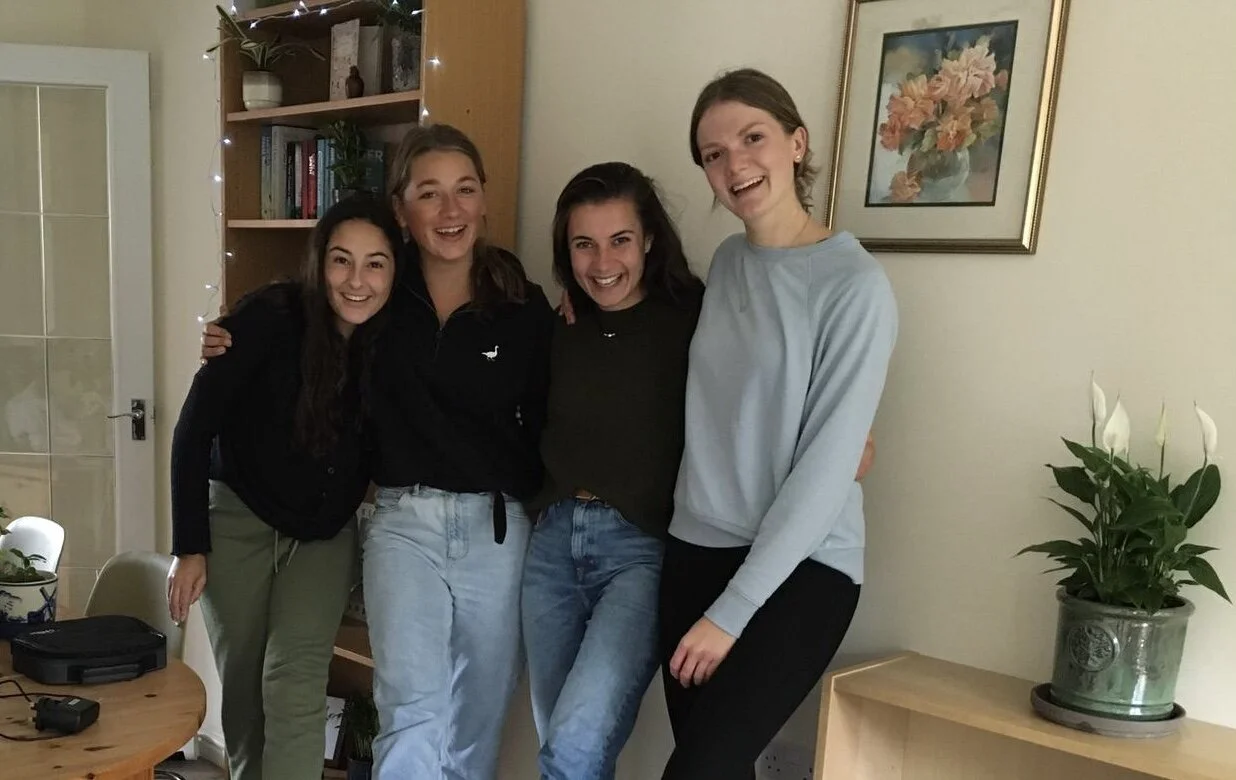Spotlight on medical student volunteer Izzy Degroot
the Virtual Doctors’ volunteer medical students supporting the ‘Doctors of Last Resort’ Team (from left to right): Ella Andrew, Imogen Peterson, Molly O'Shea and Izzy Degroot
For my latest volunteer spotlight, I had the pleasure of speaking with Izzy Degroot, a second year medical student who volunteers for the charity around her studies.
Alongside 2 housemates, who are also medical students, Izzy assists the doctors of last resort in responding to cases sent through from the clinical officers. The doctors of last resort are a team of 4, who respond to cases when they cannot be answered by the broader team of virtual doctors. Izzy’s role involves monitoring all of the cases that come through from the clinical officers, ensuring that they are then assigned to a doctor with the correct speciality and then checking that the case is responded to within 24 hours.
There are 4 doctors of last resort, and each one volunteers for 2 weeks at a time. Each of the medical students is assigned to a doctor of last resort so they can see how to respond to the cases that are sent through and can learn what advice and management plans they recommend to treat the various cases.
Izzy grew up in Zambia, moving to the UK when she was 16, and Huw, the founder of the charity, was a close family friend. So that is how Izzy came across the charity and the valuable work that they do in Zambia. A year ago Izzy reached out to see if they needed any help and if there was anything she could assist with as she had started her studies in medicine.The answer was yes, so she and her housemates started volunteering in October last year. In that time, they have slowly gained more responsibility and taken over the role of monitoring cases that come through to the doctors of last resort.
When a clinical officer is faced with a patient that they are not sure of how to treat, they send the details of the case to the Virtual Doctors. If it is then passed on to the doctors of last resort team, it will appear in the portal which Izzy checks daily. Within a 24 hour period, the team will typically receive 10-12 cases. Izzy says, ‘they can vary hugely, there will be some dermatology, some trauma, some emergencies and everything in between’. Izzy and her fellow volunteer medical students can then see how a doctor in the UK would treat this array of cases. It is an amazing insight to be gaining as a second year medic and will no doubt be hugely beneficial to Izzy as she continues her career in medicine. She says, ‘having experience from a healthcare system in a different country will be invaluable and is certainly not an opportunity that many medical students will be given.’
The platform that Izzy uses in her role is, she says ‘very tailored software that I have not seen or heard of being used elsewhere’. What Izzy likes most about the platform is how it lends itself to collaboration. When someone clicks on a case sent by a clinical officer, they can see all of the responses that have been given so far and multiple doctors can respond where required. For example, a GP could respond initially with basic guidance and then refer the case to a dermatologist who can provide more specialised advice. The clinical officers will then respond with feedback or further questions if required, though feedback is usually only received in about 20% of cases. Izzy says this can be quite frustrating as ‘it’s difficult sometimes when you help with an emergency and then don’t know what the outcome is’. But the team does appreciate that the clinical officers are very busy and don’t have the capacity to send feedback for every case.
In the short time that Izzy has so far been volunteering with the charity, it was clear from speaking to her that the role is incredibly fulfilling. She sees the cases through from the start when they first come in from the clinical officers in Zambia and Malawi, then are assigned to a relevant doctor, through to completion when guidance and patient management plans are sent back. She says that it is great to see not only the patients being helped, but also the clinical officers. That guidance from a UK doctor will educate the COs so that they are then able to treat more patients displaying the same symptoms in future. It is not just one patient being helped at a time, the long term impact is definitely being felt out in the field.
Izzy is thoroughly enjoying her work with the charity, and can see the Virtual Doctors steadily expanding into more of Africa given the success that they have already had. Whenever the team receive feedback from the clinical officers, they always say how grateful they are for the guidance from volunteers but, Izzy says, ‘the experience we are getting is like nothing we could get anywhere else so we are equally so grateful to have the opportunity to see such an array of cases and be involved in the work of the charity.’

